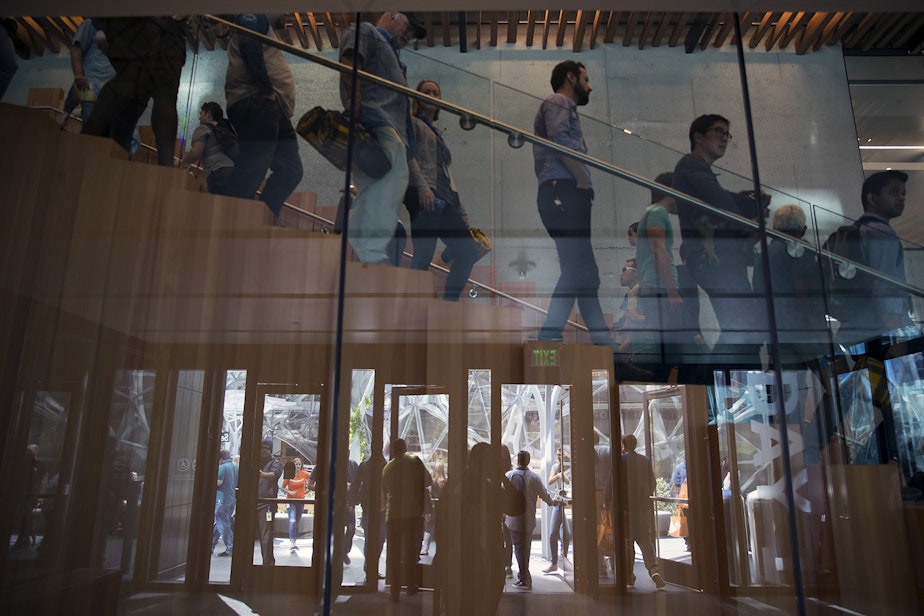How an Amazon pledge figures in the politics of housing

Amazon and Microsoft this week pledged $5 million each to build housing for homeless people in the Seattle area. Is there a political effect of this kind of corporate action?
Joni Balter, host of “Civic Cocktail” on the Seattle Channel, and Q13 political analyst C.R. Douglas joined KUOW’s Angela King to discuss.
What’s the importance of this for Amazon?
Joni Balter: I found it big in terms of telling us where our mysterious Amazon company is going now. Since the head tax (voted in and then repealed in Seattle last year) this company has been pretty aloof from local politics. Amazon is now in the crosshairs of almost everybody – they’re on the wrong side of the City Council after the head tax, they tried to go to New York (for the HQ2 effort) and New York said, “Meh,” and a couple of presidential candidates are talking about busting up or regulating big tech. And so this is a pretty good time to make friends with the hometown.
C.R. Douglas: Amazon won the head tax debate but it really didn't let them off the hook. I think they rightly viewed that as a referendum more on the City Council and its ability to spend the head tax money rather than a referendum on Amazon and whether they should be doing more. In fact since that debate there has been more and more pressure on the company to do things -- and not just external pressure, but internal pressure, from employees. Just look at the recent effort by thousands of them signing this climate change petition. They want action from their company and they're also wanting it on housing.
How does Amazon and Microsoft money move the needle on affordable housing and homelessness?
Douglas: I think the biggest effect will be the signal it sends to other companies and other foundations in the region that this problem really does take a village, that it really does require a public-private partnership. These kind of moves lead the way for other smaller players to do the same.
Balter: This all occurs in a context. Microsoft in January announced that they would spend $500 million in a mix of homeless services and workforce housing, largely. This is also the same week that Salesforce, the company from San Francisco, purchased Tableau, from Seattle. Marc Benioff, the CEO of Salesforce, was a force to reckon with in San Francisco last November when they passed – passed -- their own version of a head tax. I really don't think Amazon wanted to have Marc Benioff come in here and shame them into, “You know, guys, you got to get involved.”
Does this affect this year's City Council races?
Douglas: I think it does. The fact that Amazon has been such a low-profile player civically compared to other corporations has set it up to be this target, this piñata, for folks like City Councilmember Kshama Sawant. I mean, “big bad corporation that doesn't do anything locally,” and that has landed with a lot of people. But when you have this kind of event, when you start showing signs that the company is going to play ball, going to be part of the community, it's much harder to land those attacks.
Sponsored
Balter: Amazon has already put up I think $200,000 to the business group that's supporting or opposing certain council candidates. But if you come into those campaigns and you're just the guys that got mad at the head tax and you don't have enough skin in the game, it's almost a negative. This way they can say well we're gonna be involved in the political part of this, but we're also rolling up our sleeves and participating in some solutions.
This discussion has been edited for clarity and length.




